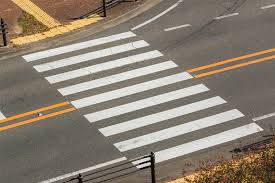What Are My Rights as an Injured Passenger?

As an injured passenger in a car accident, you have several legal options. Here are some of the most common questions we hear from clients who were injured as a motor vehicle passenger.
What if the driver of the car I was in is at fault?
In a car accident claim, it is necessary to prove both damages and liability to receive compensation. Damages is the harm you have suffered as a result of the accident. That is, your injuries and the effects of those injuries. Liability is the “fault” and refers to responsibility for causing the accident.
Some accidents are without fault. If the car you were travelling in hit a deer that jumped out on the highway, it is likely the driver wasn’t at fault. However, in most car accidents, someone is responsible.
In one-car accidents the driver is often at fault. Examples of this include inattention or driving under the influence of drugs or alcohol. This doesn’t mean you are left without a remedy. In fact, if the driver caused the accident their insurance company will owe you compensation.
In two-car accidents, the other driver may have been the one who caused the accident. For example, if the car you were in was rear-ended. In that case, you would have a claim against that other driver.
If there are two or more cars where both drivers are partially at fault, you would have claims against both of their insurance companies. This doesn’t mean that you would get twice the compensation. Rather, each driver, and by extension their insurance, owes you partial compensation. The amount of that partial compensation corresponds to the degree of that driver’s responsibility for causing the accident.
What if the driver of the car I was in is responsible for the accident – but I don’t want to sue them?
Many injured passengers are reluctant to pursue a claim because the driver is a family member or friend.
It is important to remember that it is the driver’s insurance company, not the driver personally, paying the compensation for your injuries. The insurance company deals directly with your personal injury lawyer and pays any compensation owed to you. The driver will not have to pay you money out of their own pocket.
In order to pursue your claim, it may be necessary to sue the driver “personally” – that is, name them in a lawsuit. But once the lawsuit is served, the driver’s insurance company steps into the shoes of the defendant and deals with the claim. Although the formalities of the law require you to sue the driver at fault, the practical reality is that you are effectively suing their insurance company instead.
Many people worry that if they pursue a claim involving a friend or family member, that person’s insurance premiums will go up. It is true that their premiums may go up after an accident. The reality is, however, that their premiums will go up anyway as a result of the accident. Insurance companies do their own investigations regarding premium rates following accidents. As a result, lawsuits have little effect on this calculation.
When in doubt, reach out
Ultimately, every situation is unique. For further information, we recommend you contact an experienced personal injury lawyer to discuss your experience and review your legal options.






















